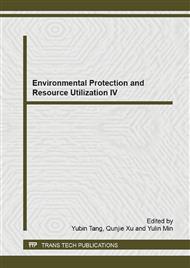p.2779
p.2784
p.2788
p.2791
p.2796
p.2802
p.2806
p.2811
p.2815
Model of High-Tech Enterprises' Contribution to Low-Carbon Economy
Abstract:
Promoting coefficient of low-carbon economy provide a solution to compare the contribution among different high-tech enterprises. Low energy consuming, low carbon emission and high-tech intensive were discovered as the core index of evaluation index system. The effect index includes four secondary indexes, economic evaluation, energy evaluation, environment evaluation and technology evaluation. The model takes into account high-tech industry’s contribution degree to low-carbon economy (CDL) and the low-carbon related management level index (LMI) in high-tech industry. The multiplication of CDL and LMI is the coefficient of the high-tech enterprise for low-carbon economy (CHEL), which means if all the high-tech enterprises’ CHEL in a certain industry could reach the level of the company we discussed, the contribution degree of that industry for low-carbon economy would be in a fixed percentage.
Info:
Periodical:
Pages:
2796-2801
Citation:
Online since:
December 2014
Price:
Сopyright:
© 2015 Trans Tech Publications Ltd. All Rights Reserved
Share:
Citation:


